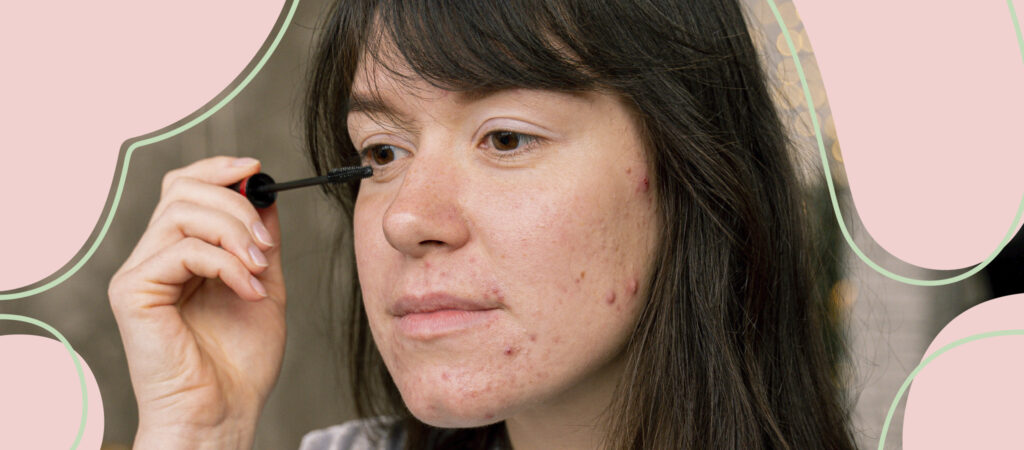Is Adult Acne Normal?
Reaching adulthood comes with benefits, but unfortunately, a guarantee of clear skin isn’t among them. Having acne as an adult is completely normal. Even though acne is most commonly associated with hormonal teenagers, there is no upper age limit on when breakouts can occur.
Though it may be annoying, the occasional bit of acne is no cause for alarm as an adult — studies have even shown that the majority of adults have some kind of persistent facial acne. Just because adult acne is normal, though, doesn’t mean that you should simply accept it. If you’re hoping to take a stand against your adult acne, here are a few things you should know.
What Causes Adult Acne?
In general, adult acne is brought about by the same things that cause acne in adolescents: clogged pores and inflammation from overactive oil glands, excess dead skin cells, and trapped bacteria. Certain factors make acne more likely in adults:
Nurx offers prescription treatment for acne, anti aging, melasma, rosacea, and eyelash growth.
Family History
If a close relative such as a parent or sibling has had persistent issues with acne into adulthood, then your genetics probably make you prone to more frequent or severe acne breakouts.
Hormones
Hormones don’t settle down entirely after high school: the human body’s hormone levels are constantly shifting, and those fluctuations can cause acne outbreaks in people of all ages. This is particularly true of people with periods, whose hormone levels change during menstruation, pregnancy, and menopause — any of which could trigger the arrival of pimples. For women whose acne is hormonal in nature, taking birth control (and/or spironolactone, a pill that reduces androgen levels) can help keep hormone levels balanced.
Stress
With adulthood comes bills to pay and big decisions to make, so stress is a pretty routine part of adulting. One of the side effects of that stress could be an uptick in acne. Stress, particularly long periods of stress, may cause your body to overproduce the hormone cortisol, which makes your skin more likely to have an inflammatory reaction to clogged pores, which equals acne. Stress could also cause outbreaks in less direct ways, such as causing you to sweat more than normal or interfering with your ability to get quality sleep — two risk factors for adult acne.
Diet
It makes sense that what you put into your body would impact your outward appearance, but the relationship with acne is not as clear as you might think. Research is still muddled on which foods — if any — cause acne, so let your individual experience be your guide. Some people find that foods high in carbohydrates, dairy, or gluten cause acne for them. If you notice that you get breakouts after going heavy on a certain food, try restricting that food for a while and see if anything changes.
Air Quality
Air pollution is rarely considered a cause of acne, but it stands to reason that when air is filled with particulate matter like car exhaust, some of those particles will end up on your skin and potentially clog your pores. If you live in a metro area or any other place with high levels of air pollution, be sure to wash your face regularly, especially if you’ve spent a lot of time outdoors.
How to Treat Adult Acne
Your first line of defense against adult acne breakouts should be a careful skincare routine. It’s important to get just the right balance when it comes to your skin: wash regularly, but not so frequently that you risk irritating your skin even more. Stay away from harsh cleansers that strip your skin of moisture and lead it to overcompensate with increased oil production, or scrubs that can be irritating to the skin.
For some adults, over-the-counter treatments are adequate to keep acne under control, but for others prescription medication will be the most reliable outbreak solution. Many find success with a topical treatment, such as topical antibiotics or retinoids like tretinoin (Retin-A). A doctor may recommend an oral acne treatment, such as an antibiotic like tetracycline or a medication to regulate hormones, such as spironolactone or birth control pills.
If people in your family have received acne treatments, talk to them about what worked and what didn’t. While there’s no guarantee of success, treatments that worked for family members are a good place to start. Whatever route you end up taking, remember that no two people are exactly alike, so prescriptions or methods that work for others may have no impact on you.
If you’re looking for a way to treat your acne but don’t know where to start, our team of experts here at Nurx can help. It can be difficult to figure out which treatments are for you and which aren’t, so get in touch with us today to see what your path forward should look like.







